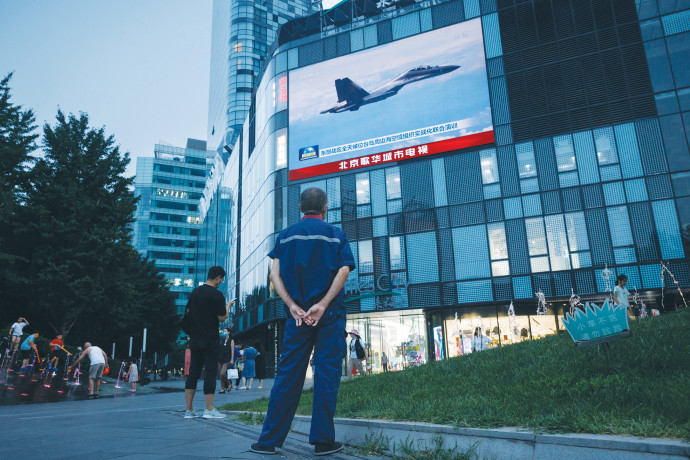Taiwanese Defense Minister Chiu Kuo-cheng updated the nation's definition of a "first strike" against Taiwan to include incursions by Chinese drones into its territorial airspace on Tuesday, according to Focus Taiwan.
In the past, Taiwan defined a "first strike" scenario as a direct missile or artillery attack, but the increasing frequency with which Chinese UAVs fly into Taiwanese territorial airspace has been causing "a lot of trouble," he explained.
The issue was first brought up last week, when Chiu stated that incursions of Chinese People's Liberation Army (PLA) fighter jets into Taiwan's territorial airspace would now be considered a "first strike" against the nation.
“In the past, we said we will not be the first to strike, which meant we will not strike without them firing artillery shells or missiles, et cetera, first,” Chiu said. “But now the definition has obviously changed, as China has been using new equipment such as drones. So we have adjusted and will view any crossing of aircraft or vessels as a first strike.”
"Now the definition has obviously changed, as China has been using new equipment such as drones. So we have adjusted and will view any crossing of aircraft or vessels as a first strike.”
Taiwanese Defense Minister Chiu Kuo-cheng
Chiu did not elaborate on what such countermeasures would be if such an event were to occur at the time, a position he maintained on Tuesday regarding the drones.

A nation's territorial airspace refers to the area above and around its territory, extending 12 nautical miles from the coastline.
Far East tensions rise
Tensions between Taiwan and China around the island escalated after the Speaker of the US House of Representatives, Nancy Pelosi, visited Taipei in August. Beijing condemned the visit as US support for Taiwanese separatism.
In concurrence with the visit, the PLA held large-scale military exercises in the Taiwan Strait and announced that such maneuvers would be regular, repeatedly entering Taiwan's territorial airspace despite warnings and objections.
The exercises show that Beijing seeks to unilaterally change the “status quo” across the Taiwan Strait, Chiu said, citing Chinese incursions beyond the median line of the Strait.
The tacit agreement between Taipei and Beijing regarding the median line has been undone forever, Chiu said.
The median line only existed because both sides tacitly agreed to its existence, but any such agreement has been unilaterally overturned by the Chinese Communist Party (CCP), Chiu said in response to Democratic Progressive Party Legislator Lo Chih-cheng’s question whether the line still exists.
Taiwan shoot down Chinese drone
Taiwan's military for the first time shot down an unidentified civilian drone that entered its airspace near an islet that sits near China's Xiamen city at the beginning of September after the government vowed to take tough measures on such incursions.
The incident came after Taiwan had repeatedly complained of harassment by drones coming from China and flying right up close to the Kinmen islands, which have been taking place as Beijing stages military drills around Taiwan.
Speaking to reporters, Taiwan Premier Su Tseng-chang said Taiwan had repeatedly issued warnings and "asked them not to encroach on our doorstep."
"They repeatedly ignored our warnings to leave and we had no choice but to exercise self-defense and shoot. This is the most appropriate reaction after repeated restraint and warnings," he added.
President Tsai Ing-wen reaches out for peace
President Tsai Ing-wen in her Double Ten National Day address on Monday said her administration is “willing to work with Beijing authorities to find a mutual arrangement to uphold peace and stability in the Taiwan Strait,” provided that negotiations are conducted with “rationality, equality and mutuality,” according to the Taipei Times.
“I want to make it clear to Beijing authorities that armed confrontation is absolutely not an option for our two sides,” Tsai said.
“Only by respecting the commitment of Taiwanese to their sovereignty, democracy and freedom can there be a foundation for resuming constructive interactions across the Taiwan Strait,” she added.
Despite calls for cooperation, Tsai said China has threatened peace and stability in the Strait and the region through military intimidation, diplomatic pressure, trade obstructions and attempts to erase the sovereignty of Taiwan.
